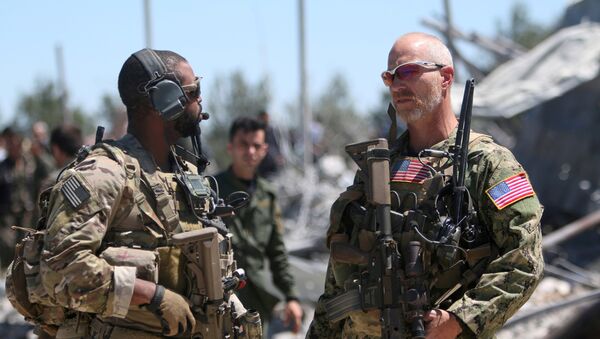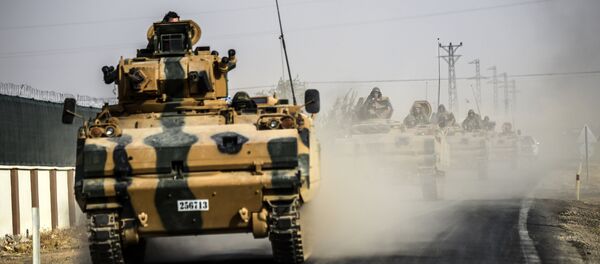The Pentagon's spokesman Major Adrian Rankine-Galloway said that the Kurdish fighter have been the recipients of US-provided small arms and military vehicles ready for the push to take the Raqqa from Daesh who have used at as their de-facto capital in the war-torn country.
Arrival of a new shipment of US weapons for YPG-led SDF fighters
— CLAUDIA (@ClaudiaAlMina) May 30, 2017
Via @MHJournalist #Raqqa #SDF #YPG #YPJ pic.twitter.com/lwFMEsVHXi
While there has been no reflexive response from Turkey as of yet, the NATO member state previously delivered a stern warning to the United States, saying that bilateral relations would be ruptured if the arms were delivered to the YPG.
Turkey deems the Syria Kurdish groups as terrorists who work in cahoots with the outlawed Turkish Kurdistan Workers Party (PKK), which has been intermittently waging guerrilla warfare against the Rakish state since the late 1970s. At the same time, the US military sees the YPG as the most battle-tested and effective fighting force on the ground against Daesh.
The significance of the Kurds as a US ally increased when former President Obama declared that the war against Daesh would be "by, with, through" local soldiers. Then, at the tail end of February 2017, Turkish Prime Minister Ahmet Davutoglu said in reference to the US support for the Kurds that, "the only thing we expect from our US ally is to support Turkey with no ifs or buts."
The Obama administration initiated its program of arming the Kurds in its second term. Upon the election of the seemingly isolationist President Trump, Turkish President Recep Tayyip Erdogan was hopeful that the US might cease the policy of arming the Syrian Kurds. However, Trump announced just after the new years that he intended to continue, much to the frustration of Ankara.
Pentagon officials have — in what seems like an attempts to assuage the anxiety of Ankara — said that they will look into boosting intelligence cooperation with Turkey in the fight against Daesh as well as on PKK activity. Turkey is yet to reciprocate, indicating that intelligence sharing isn't enough to satisfy the fears that Ankara harbors over the emboldenment of the Syrian Kurdish groups.
Back in the summer of 2016, Ankara's concern over the YPG reached its apex when Turkey launched its own military operation in Syria, called 'Euphrates Shield.' Allegedly the mission had the objective of targeting Daesh, but also the Kurdish groups, namely the YPG, in order to block them from controlling enclaves of land across the Syria-Turkey border which could create logistics corridors for the transfer of weapons to the PKK in Turkey.




